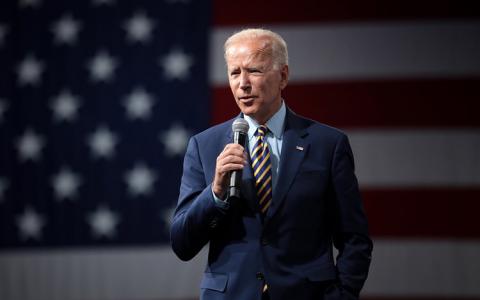
This week, ProPublica published a treasure trove of information on the financial lives of some of our wealthiest citizens. The info confirmed what many tax experts already know: There is one tax system for the rich and another for everyone else. By using perfectly legal and straightforward strategies like holding assets, borrowing money and passing the assets to family members at their death, wealthy people can essentially choose whether and how much income tax they want to pay.
By using perfectly legal and straightforward strategies, wealthy people can essentially choose whether and how much income tax they want to pay.
What is nominally a progressive tax system, where higher-income taxpayers pay a greater share of their resources as taxes, is in reality a system that allows the world’s richest man, Jeff Bezos, to pay no income taxes in 2007 and 2011. He is not alone. Elon Musk, Michael Bloomberg and George Soros, per ProPublica, all joined our 45th president, per The New York Times, in the “no federal income tax” club at least once. (Bezos and Musk didn’t give ProPublica a comment when asked. A spokesperson for Bloomberg said he “pays the maximum tax rate on all federal, state, local and international taxable income as prescribed by law.” A spokesperson for Soros said: “Between 2016 and 2018 George Soros lost money on his investments, therefore he did not owe federal income taxes in those years. Mr. Soros has long supported higher taxes for wealthy Americans.” Trump has called criticism of his tax rates “fake news.“)
Under a truly progressive tax system, these individuals would pay a greater share of their income in taxes than firefighters and teachers whose wage income is subject to both income and payroll taxes. As ProPublica illustrated, our income tax system does a poor job of truly capturing the economic income of our richest, especially if you think income should more closely match spending power.
Despite highlighting the different tax systems for those with vast wealth, the ProPublica report also raises questions about the IRS’ ability to keep sensitive financial information confidential. This in turn could undermine the support the IRS needs to crack down on tax evasion (mostly by the merely wealthy — not the .001 percent). It would be an unfortunate and ironic consequence of what is truly a historic report.
A key component of the Biden administration’s Made in America Tax Plan is enforcement. To address the tax system’s role in inequality, the IRS wants to address large amounts of income underreporting by wealthy people. Backstopping its tax gap plan is a proposal to require banks and other financial institutions to provide the IRS with additional information about aggregate bank account deposits and withdrawals.
While ProPublica did not reveal who leaked the information (and states that it does not know the source) the report may weaken confidence and trust in the IRS and hurt proposals to increase exponentially the amount of financial information that is currently reported. (In fact, Republicans are already pointing to the ProPublica story to justify not supporting the Biden administration’s tax gap proposals).
ProPublica acknowledged that the release of the information may violate the privacy of the people it featured. Yet the site justified its release by arguing, “We believe it serves the public interest in fundamental ways, allowing readers to see patterns that were until now hidden.”
That ProPublica published a separate justification highlights the costs associated with its story.
Owning vast amounts of wealth allows rich people to borrow against that wealth; when you borrow money, you have no income, even when the assets that may secure the loans have appreciated immensely. And assets passed down through generations can perpetuate these tax benefits — and inequality.
Longtime tax system critic David Cay Johnston hailed the ProPublica release as the “biggest and most important” tax story in his 55-year career. Hopefully, Johnston said, the article will help America “wake up and realize that our federal income tax, as currently designed, is a massive subsidy system for the super-rich.” The ProPublica report also featured all white men, highlighting what Dorothy Brown, author of “The Whiteness of Wealth,” has previously shown — namely that our ostensibly race-neutral tax system contributes to the increasing racial wealth gap, with Black Americans often left behind.
None of this is happening in a vacuum. The Biden administration has committed to addressing some of the inequities of our current income tax system, including ensuring a greater equivalence between the way the tax system treats capital and labor income. A key proposal would prevent individuals from inheriting appreciated assets at market value with no taxes on the unrealized gain. The ProPublica report should generate support for changing the rules, especially now that we see clearly how the wealthiest people, whose net worths have spiked in the pandemic, are easily and legally able to avoid paying.
Yet despite the possible positive impact on some of the Biden administration’s substantive tax proposals, the administration announced it was conducting a multi-pronged investigation to determine the source of the IRS leak. The unauthorized disclosure of tax return information is a crime, and taxpayer confidentiality is an important part of the system. We can only hope ProPublica's reporting on tax inequality doesn't inadvertently make it harder for the IRS to detect and punish the wealthy taxpayers evading their taxes. That would squander what could yet be a fleeting moment of consensus around beefing up the IRS.
This article originally appeared on NBC News.



